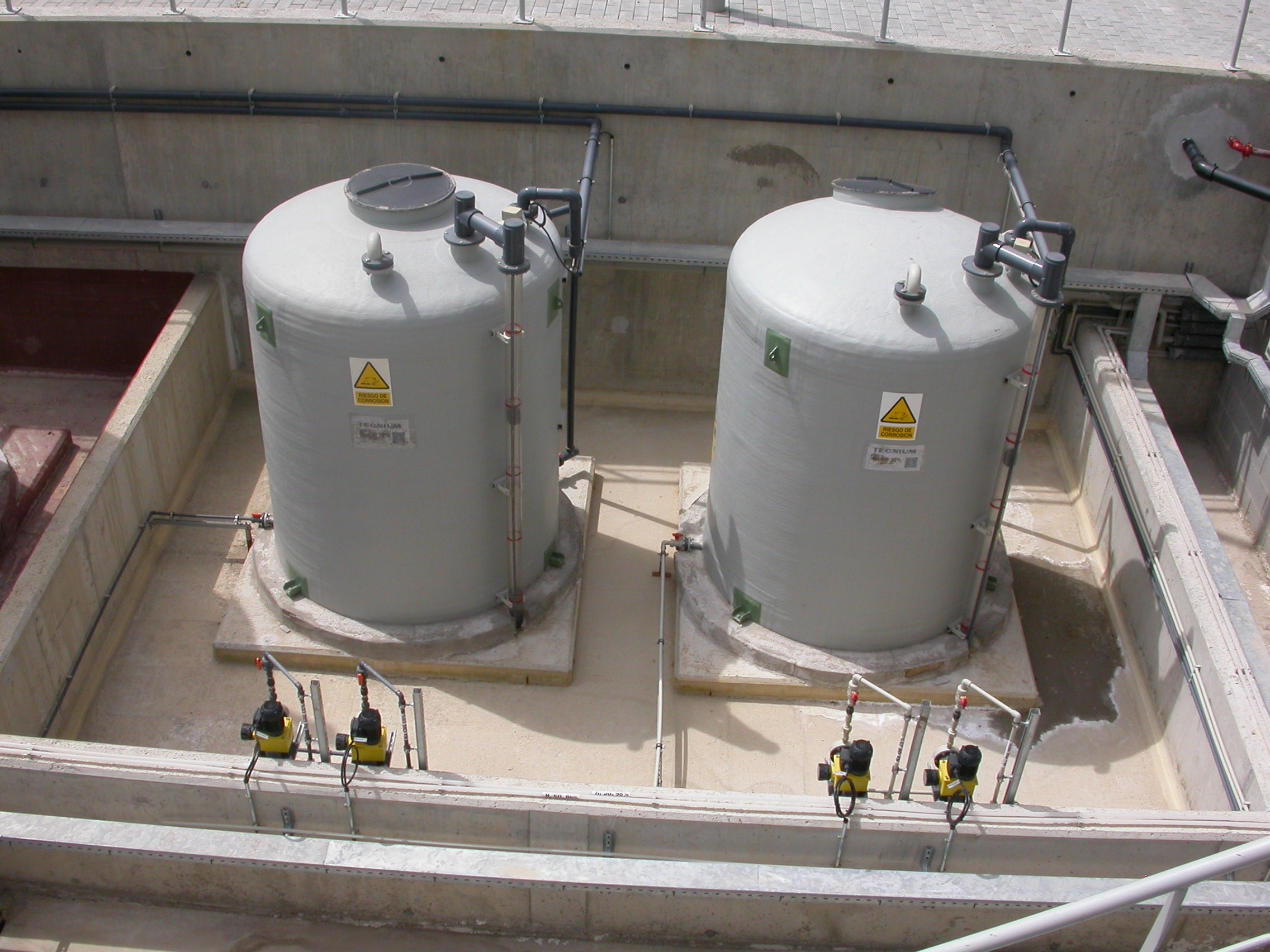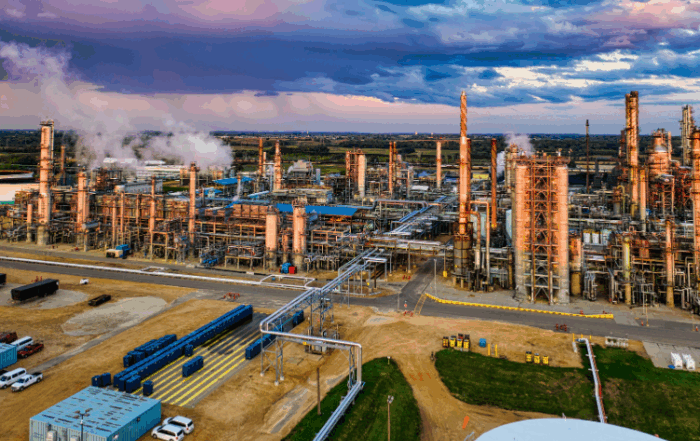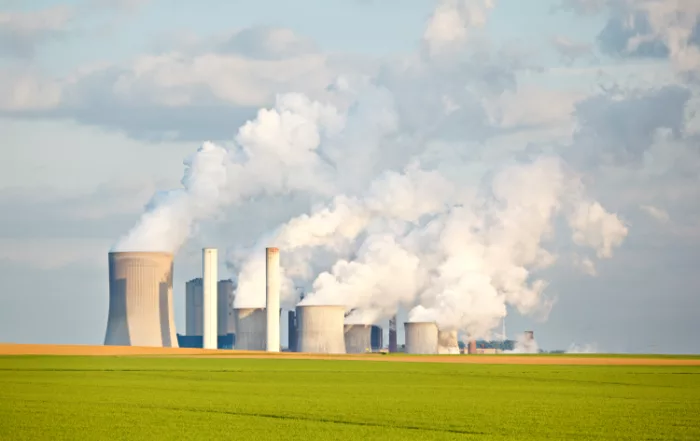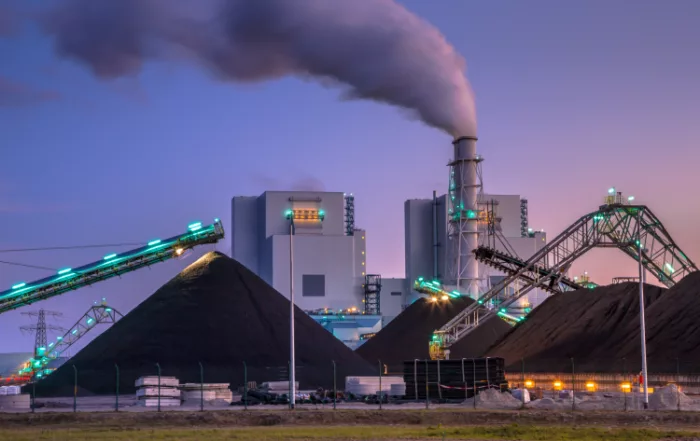Storage Plastic / FRP Tanks for Chemicals
Reagent Storage Tanks Farm.
Water treatment in either potable water treatment plant, municipal wastewater treatment plant or in a desalination plant , aims to treat water so that once processed it is fit for human consumption or is suitable for pouring back to the rivers or to the sea.
There are different types of treatments depending on the origin and use of water, but basically can be summarized as follows:
- Prefilter for removing foreign bodies in the water
- Treatment by flocculation or coagulation, process by which solid particles are separated by the addition of different chemicals
- Decantation, physical process that makes particular settle to the bottom of the equipment designed for this purpose
- Sand filtration beds
- Biological filters
- In the case of potabilization, final disinfection by adding chlorine gas or sodium hypochlorite to achieve potable water
- Reverse osmosis or ultrafiltration in case of desalination
- Treatment of sludge generated in various stages
Performing the above processes involve the use of different chemicals which are added in the process and allows TECNIUM be present as a supplier within this sector.
Description of plastic tanks for reagent storage.
The need to use chemicals for water treatment makes these facilities to have storage tanks to ensure continuous operation. These products are often corrosive from industrial manufacturing process to its addition to the water process. For this reason these storage tanks must meet certain technical requirements for chemical resistance.
TECNIUM specializes in the manufacture of such plastic tanks, using various materials such as FRP (fiberglass reinforced polyester), PP, HDPE, PVC, …
This set of tanks is referred Reagent Storage Tanks Farm and is vital the selection of materials and the calculation of the thickness needed to ensure its mechanical and chemical resistance, as well as compliance with the specific standards for chemical storage.
TECNIUM is able to manufacture these equipments under such standards. TECNIUM can supply single-walled plastic tanks to install into retention ponds , or double-wall tanks as stipulated by the regulations so that , in case of breakage of the tank, the second wall prevents liquid leakage .
More information
Give us your contact details and we will advise you on the best solution for your application.
View also
The Critical Chemical Alliance
Europe’s Industrial Comeback Strategy In a decisive move to reinforce industrial resilience and regain sovereignty in key manufacturing sectors, the European Commission has announced the upcoming launch of the Critical Chemical Alliance. This [...]
Industrial gas scrubbing in the metallurgical industry: Efficiency, compliance and sustainability with Tecnium
In the metallurgical sector, industrial gas scrubbing is a key technology to ensure operational sustainability and compliance with increasingly stringent environmental regulations. Smelting, refining, coating, and metal surface treatment processes generate emissions with high [...]
Magnetic coupling pumps: efficiency, safety and sustainability for industry
The magnetic coupling pumps from Tecnium represent one of the most advanced and safest technologies for fluid handling in modern industry. Their seal-less design, high energy efficiency, and resistance to aggressive chemicals make them [...]
How do process pumps work for the chemical industry?
What are process pumps? Process pumps play a vital role in the chemical industry, being essential for the safe and efficient processing of corrosive, abrasive, and sometimes hazardous fluids. These pumps are [...]
Efficiency in gas treatment: The change and evolution towards cleaner processes
Gas treatment technologies for various industries The increasing focus on environmental sustainability has placed the treatment of industrial waste gases at the heart of continuous improvement strategies for many industries. This approach [...]
TECNIUM will participate in Euro Chlor 2025, the international reference event for the chlor-alkali industry
We present our technical solutions for a safer, more efficient and sustainable chlor-alkali industry TECNIUM, a company specialized in pumping, storage and gas treatment technologies for demanding industrial environments, announces its participation in [...]









